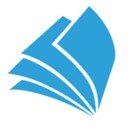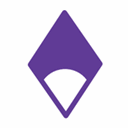Uncovering the Best LENS Alternatives for Innovation Cartography
LENS is a remarkable platform, serving as a free, open, and secure digital public good for exploring global patents and scholarly work. Its capabilities in patent search and analysis, discovering experts, and creating insightful collections and reports, coupled with powerful analysis dashboards, make it invaluable for innovation cartography. However, for various reasons – perhaps specific feature needs, interface preferences, or a desire for different data sets – users may seek a robust LENS alternative. This article delves into several excellent options that can fulfill similar research and analysis requirements.
Top LENS Alternatives
While LENS offers extensive features for intellectual property and scholarly research, a diverse landscape of tools exists, each with unique strengths. Here are some of the top contenders that can serve as excellent alternatives, offering comparable or complementary functionalities for your innovation exploration needs.

Google Scholar
Google Scholar is a freely accessible web search engine that indexes the full text of scholarly literature across an array of publishing formats and disciplines. As a free, web-based platform, it serves as a powerful LENS alternative for broad academic research, allowing users to discover a vast range of scholarly articles and citations, though it lacks the patent-specific analysis of LENS.

Microsoft Academic Search
Microsoft Academic Search is an experimental research service developed by Microsoft Research designed to help scholars, scientists, and students find academic literature. This free, web-based platform focuses on education and research discovery, making it a viable LENS alternative for academic exploration, though it may not offer the same depth in patent analysis.

Sparrho
Sparrho is a discovery and recommendation engine for scientific content. This free, web-based platform features a robust discovery engine, making it an interesting LENS alternative for researchers looking to stay updated with the latest scientific publications and get personalized recommendations, a feature not as prominently highlighted in LENS.

Scinapse
Scinapse is a free, nonprofit academic search engine for papers, serviced by Pluto Network. Its key features include indexed search and a dedicated search engine for academic content. As a free, web-based platform, Scinapse offers a clean and efficient way to search for scholarly articles, making it a strong LENS alternative for those primarily focused on academic paper discovery.

Scopus
Scopus is a bibliographic database containing abstracts and citations for academic journal articles. Unlike the free LENS, Scopus is a commercial, web-based platform widely used for its comprehensive coverage of scientific, technical, medical, and social sciences literature. It serves as a powerful LENS alternative for institutions and researchers needing a more extensive, subscription-based database for citation analysis and literature reviews.

SemanticScholar
Semantic Scholar is a paywall-free science publication aggregator that collects citation data from sources like PubMed, CiteSeer, and IEEE, ranking articles based on various metrics. This free, web-based platform is an excellent LENS alternative for researchers seeking to explore scholarly literature with a focus on impact and relevance, leveraging AI to understand and organize research papers.
The landscape of academic and patent research tools is rich and diverse. While LENS stands out for its comprehensive, free, and open approach to innovation cartography, these alternatives offer specialized strengths for different needs. Whether you prioritize broad academic search, AI-driven discovery, or extensive bibliographic databases, exploring these options will help you find the best fit for your research and analysis goals.